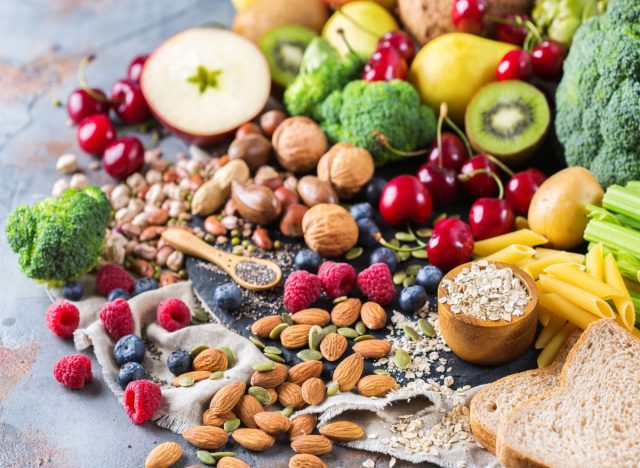The #1 Best Eating Habit for Fertility, Says Science

Fertility is the natural capability to conceive or induce conception. Both men and women can deal with infertility, a condition of the reproductive system that prevents the conception of children. It affects approximately 10 to 15% of couples throughout the United States. While conception and pregnancy can overall be a complicated process, there are many ways to try and bring new life into the world, medically and naturally.
If in the next chapter of your life you see parenthood, there are ways to potentially increase your fertility. According to an article published in the Frontiers in Public Health Journal, diets high in unsaturated fats, whole grains, vegetables, and fish have been associated with improved fertility in both women and men.
Although more studies are needed, research has aimed to identify modifiable risk factors for infertility. Currently, nutritional factors are the most popular to control. The evidence suggests that nutrition can play an important role in altering fertility-related outcomes in both men and women.
The data reviewed a randomized controlled trial of subfertile women (women who have any form of reduced fertility with prolonged time of unwanted non-conception) studied one group that took a multivitamin containing 400 micrograms (μg) of folic acid for 3 months, while the other group took a placebo. After the trial months, 26% of the multivitamin group had a pregnancy, compared to 10% of women who took the placebo.
The same study also reported that there is a well-characterized association between high intake of folic acid, polyunsaturated fats, and plant-based foods on fertility results.
According to MedlinePlus, folic acid is a vitamin B, which helps the body make healthy new cells. For women who may get pregnant, it is really important. Getting enough folic acid before and during pregnancy can prevent major birth defects of her baby's brain or spine.
Foods with folic acid in them include leafy green vegetables, fruits, dried beans, peas, nuts, enriched bread, cereals, and other grain products.

Polyunsaturated fats are a type of unsaturated fat. It's found in high concentrations in sunflower, corn, soybean, and flaxseed oils, walnuts, flax seeds, fish, and canola oil. Omega-3 fatty acids are also an important type of polyunsaturated fat because your body cannot make these, so you need to obtain them from food such as fish and walnuts.
The Frontiers in Public Health Journal continues to state that studies have shown that foods in saturated fats and sugar have been associated with poorer fertility outcomes in women and men. These associated foods with have also been linked to women and men with obesity, therefore having a higher risk of infertility. Underweight women are also at risk.
Currently, more research is being done on examining the effect of dairy on fertility. In a study published in Human Reproduction, while no relationship was found between total intake of dairy products and risk of infertility, full-fat dairy products were associated with a lower risk of ovulatory infertility while low-fat dairy products (such as skim, 1%, and 2% milk, yogurt, or cottage cheese) were associated with a higher risk.









